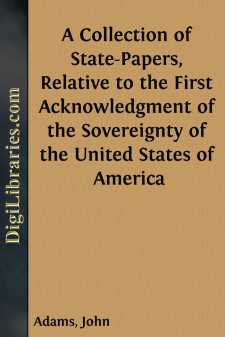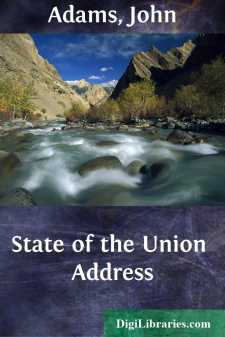Categories
- Antiques & Collectibles 13
- Architecture 36
- Art 48
- Bibles 22
- Biography & Autobiography 813
- Body, Mind & Spirit 142
- Business & Economics 28
- Children's Books 17
- Children's Fiction 14
- Computers 4
- Cooking 94
- Crafts & Hobbies 4
- Drama 346
- Education 46
- Family & Relationships 57
- Fiction 11829
- Games 19
- Gardening 17
- Health & Fitness 34
- History 1377
- House & Home 1
- Humor 147
- Juvenile Fiction 1873
- Juvenile Nonfiction 202
- Language Arts & Disciplines 88
- Law 16
- Literary Collections 686
- Literary Criticism 179
- Mathematics 13
- Medical 41
- Music 40
- Nature 179
- Non-Classifiable 1768
- Performing Arts 7
- Periodicals 1453
- Philosophy 64
- Photography 2
- Poetry 896
- Political Science 203
- Psychology 42
- Reference 154
- Religion 513
- Science 126
- Self-Help 84
- Social Science 81
- Sports & Recreation 34
- Study Aids 3
- Technology & Engineering 59
- Transportation 23
- Travel 463
- True Crime 29
A Collection of State-Papers, Relative to the First Acknowledgment of the Sovereignty of the United States of America
by: John Adams
Description:
Excerpt
INTRODUCTION
As the States General of the United Provinces have acknowledged the independency of the United States of North America, and made a treaty of commerce with them, it may not be improper to prefix a short account of John Adams, Esq; who, pursuing the interests of his country, hath brought about these important events.
Mr. Adams is descended from one of the first families which founded the colony of the Massachusets Bay in 1630. He applied himself early to the study of the laws of his country; and no sooner entered upon the practice thereof, but he drew the attention, admiration, and esteem of his countrymen, on account of his eminent abilities and probity of character. Not satisfied with barely maintaining the rights of individuals, he soon signalized himself in the defence of his country, and mankind at large, by writing his admirable Dissertation on the Canon and Feudal Laws; a work so well worth the attention of every man who is an enemy to ecclesiastical and civil tyranny, that it is here subjoined. It showed the author at an early period capable of seconding efficaciously the formation of republics on the principles of justice and virtue. Such a man became most naturally an object of Governor Barnard's seduction. The perversion of his abilities might be of use in a bad cause; the corruption of his principles might tarnish the best. But the arts of the Governor, which had succeeded with so many, were ineffectual with Mr. Adams, who openly declared he would not accept a favour, however flatteringly offered, which might in any manner connect him with the enemy of the rights of his country, or tend to embarrass him, as it had happened with too many others, in the discharge of his duty to the public. Seduction thus failing of its ends, calumny, menaces, and the height of power were made use of against him. They lost the effect proposed, but had that, which the show of baseness and violence ever produce on a mind truly virtuous. They increased his honest firmness, because they manifested, that the times required more than ordinary exertions of manliness. In consequence of this conduct, Mr. Adams obtained the highest honours which a virtuous man can receive from the good and the bad. He was honoured with the disapprobation of the Governor, who refused his admission into the council of the province; and he met with the applause of his countrymen in general, who sent him to assist at the Congress in 1774, in which he was most active, being one of the principal promoters of the famous resolution of the 4th of July, when the colonies declared themselves free and independent states.
This step being taken, Mr. Adams saw the inefficacy of meeting the English Commissioners, and voted against the proposition; Congress, however, having determined to pursue this measure, sent him, together with Dr. Franklin and Mr. Rutledge, to General Howe's head quarters. These Deputies, leading with them, in a manly way, the hostages which the general had given for their security, marched to the place of conference, in the midst of twenty thousand men ranged under arms....



